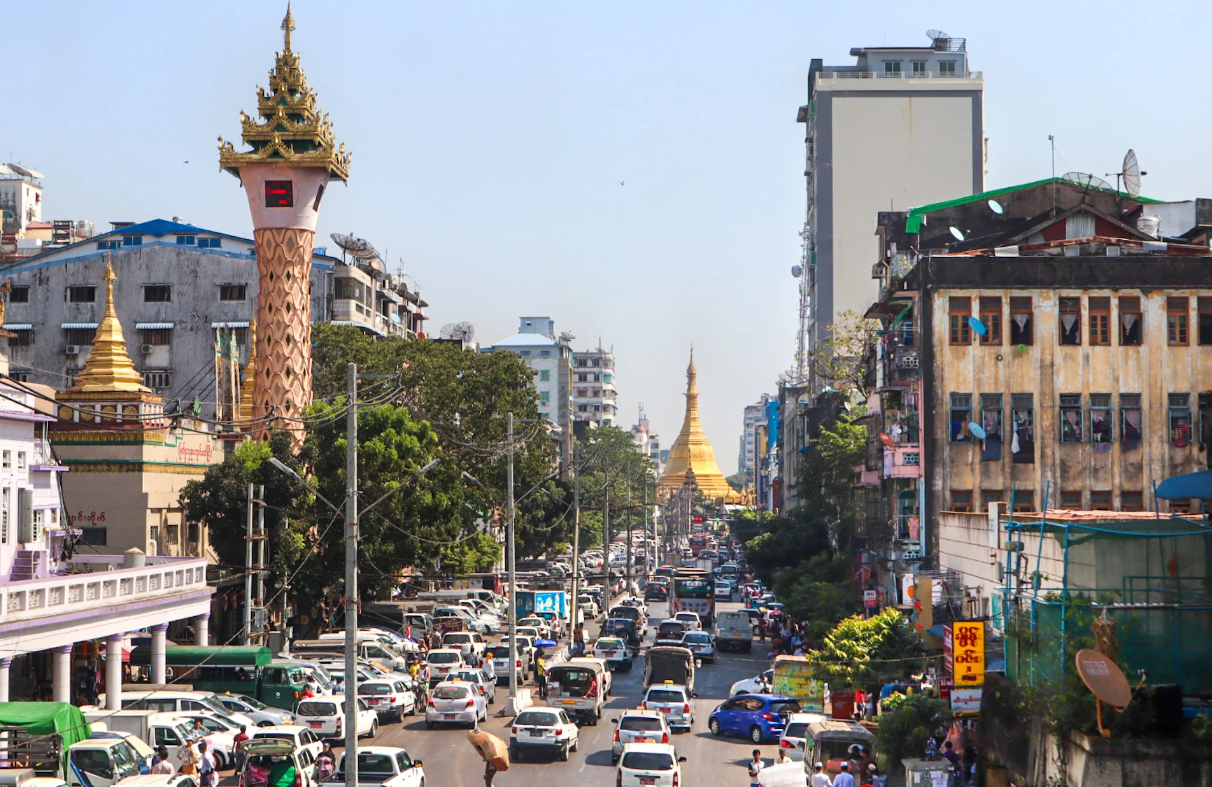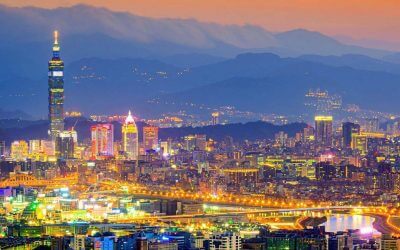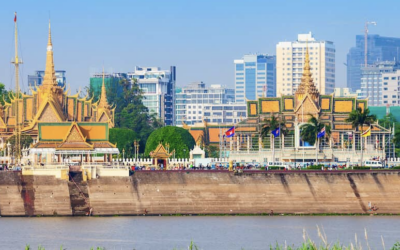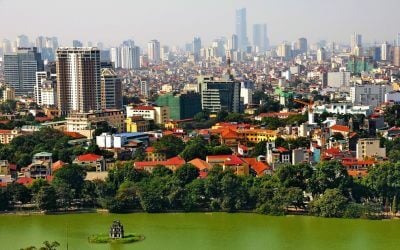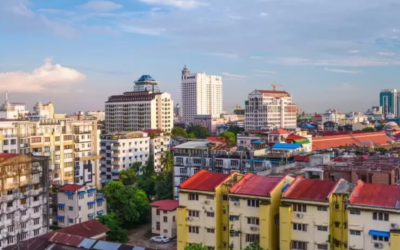Last updated September 4th, 2024
In most countries, stocks are the most common method of offshore investment by far.
Compared to actively managing rentals or a business, it’s way easier to just place a trade with your broker and be done with it.
With that said, frontier markets often don’t even have a stock market at all.
Frontier markets are on a rapid growth trajectory, but often aren’t developed enough to the point where they’ve built up the infrastructure required for a public equity market.
That’s not necessarily a bad thing. In fact, it’s part of the appeal of investing in frontier markets. Greater opportunities exist in places that aren’t yet swarmed by capital from Blackrock and other institutional investors.
Below, we’ll explore several frontier markets in Asia that do have fully-functioning stock exchanges.
They may still require travel to personally visit a branch and open a brokerage account. Regardless, a determined investor can benefit from entry barriers.
Stocks in Mongolia
Positioned directly to China’s northern border, Mongolia is getting tons of investment from its much bigger neighbor.
Mongolia isn’t a small country itself in terms of land size – it’s the world’s 18th largest. Having barely over 3 million inhabitants gives it one of the lowest population densities on the planet though.
Chinese investors are pouring into Mongolian investments because of this fact, combined with its vast reserves of coal, tin, oil, and other natural resources.
Simply put, Beijing needs more of Mongolia’s resources as they continuously deplete their own.
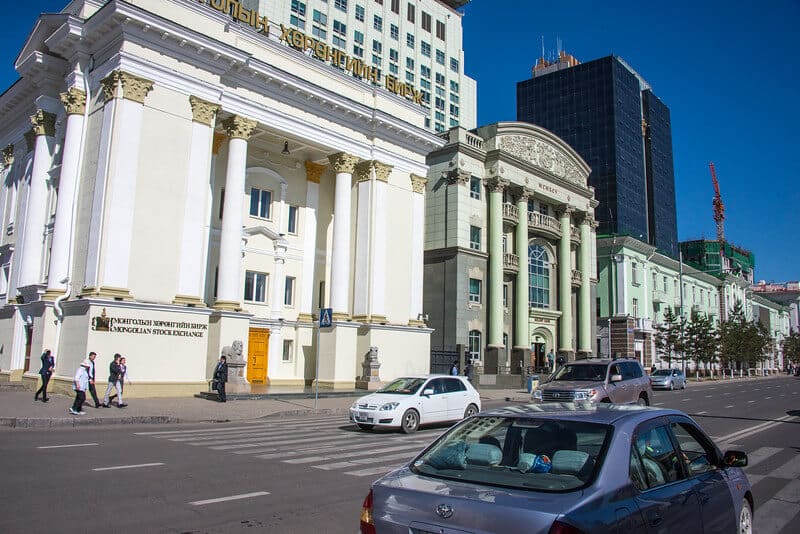
Out of all the frontier market exchanges we cover, stocks in Mongolia are the least correlated with assets in Europe and the Americas.
Easy access to hot money across the border is possibly why Mongolia has a fairly sizable stock exchange… at least for a frontier market.
You can trade nearly 200 publicly listed companies on the Mongolia Stock Exchange (MSE) ranging across almost every sector.
However, you’ll need to open a local brokerage account to buy stocks in Mongolia. There’s no other way around this. A few businesses do offer remote brokerage account opening services though.
Stocks in Vietnam
Vietnam arguably isn’t even a frontier market anymore. All of the major rating agencies consider it one though, so we’re still including Vietnam on our list.
The Southeast Asian nation is unique because it has two different stock exchanges. Both its capital of Hanoi and largest city of Saigon each have an exchange with several hundred listed firms.
You’ll generally need to open a brokerage account in Vietnam in order to trade stocks directly. Either that, or a trade through an account based in a nearby financial hub such as Singapore.
No brokerage that’s based in Europe or the US provides access to Vietnamese stocks. Nor any other frontier market, for that matter.
The bad news? You’ll need to visit Vietnam to open a local brokerage account and can’t do it from home.
If opening a local account is too inconvenient for you, it’s possible to buy frontier market ETFs based in other countries focus which exclusively on Vietnamese stocks.
A majority of these ETFs are listed on U.S. exchanges and include VanEck Vectors Vietnam. However, a frontier market ETF isn’t the best way to buy stocks in Vietnam. It’s not the most cost-effective either.
Instead, you should ideally look towards small and mid-cap stocks. There are dozens of smaller firms in Vietnam that barely see analyst coverage.
Plenty of undiscovered gems wait for anyone able to put forth the effort. That’s generally how things work in Asia’s emerging economies.
More Frontier Markets: Cambodia, Laos & Myanmar
It’s worth mentioning that some frontier markets in Asia, while they do technically have a stock exchange, are in a position of low trading volume or liquidity.
Either that, or they simply aren’t accessible to foreign buyers at all right now.
Cambodia’s stock market, for example, has precisely eleven listed companies. Five of those are quasi-public corporations including the Phnom Penh Water Supply Authority and Sihanoukville Autonomous Port.
Next door, stocks in Laos are in a similar position. The Lao Securities Exchange likewise has eleven listed which include the nation’s largest bank and two property developers.
The Yangon Stock Exchange in Myanmar is the world’s smallest with just four listed companies. It’s also the newest stock exchange in Asia. But few available options and lack of foreign buyers hindered its momentum.
That was even before a coup. Needless to say, buying stocks in Myanmar as a foreigner is practically impossible nowadays.
Here’s the main question: can these frontier markets attract a greater number of listings and lure foreign investors?
So far, Cambodia’s stock exchange is steadily growing over time. Laos’ is stagnant while Myanmar’s is collapsing on the other hand.
Time will tell how Asia’s frontier market stock exchanges will perform over the long-term.
We think several of them, although perhaps not all, will see immense growth in terms of both their total size and profitability in the coming decades.
Frontier Market Stocks: FAQs
What's a Frontier Market?
Frontier markets refer to economies that are less developed compared to emerging markets. These economies are not large or prosperous enough to be classified as emerging markets.
Typically, frontier markets are experiencing rapid economic growth. This is often driven by demographic factors such as population expansion, urbanization, the emergence of a new middle class, and increasing foreign investment.
Some examples of frontier markets include Laos, Cambodia, and Nepal.
While frontier markets have the potential for rapid economic growth, investing in them involves a certain degree of risk. Many frontier markets either lack a stock exchange altogether, or have a small one that is challenging to access.
How Can I Trade Stocks in Frontier Markets?
Opening an brokerage account in Singapore will give you access to some frontier market stocks in Asia. You'll be able to trade in Indonesia, Philippines, and Vietnam through an offshore account based in one of Asia's financial hubs.
However, it's worth noting that the vast majority of frontier market stock exchanges require a local account in order to access them. These countries usually haven't developed to the point where they're accessible from abroad.
What's the Smallest Stock Exchange in the World?
Cambodia and Laos both have only eleven stocks listed on their exchange, which makes them both tie for the world's smallest stock market.
How Are Emerging Markets and Frontier Markets Different?
The key differences between emerging markets and frontier markets lie in their size, level of economic development, and risk profile.
Emerging markets are generally larger and more developed economies compared to frontier markets. These nations typically have more established stock markets which makes them more accessible.
In contrast, frontier markets are smaller and less mature, often lacking the robust financial infrastructure found in emerging economies. As a result, frontier market stock exchanges tend to be smaller and more challenging to access.
This disparity in development also translates to differing risk profiles. Emerging markets are generally viewed as lower-risk investment destinations. Frontier markets, on the other hand, are considered riskier in general.
However, this increased risk also brings the potential for higher returns, as frontier markets often experience rapid growth driven by factors like population expansion, urbanization, and rising foreign investment.

